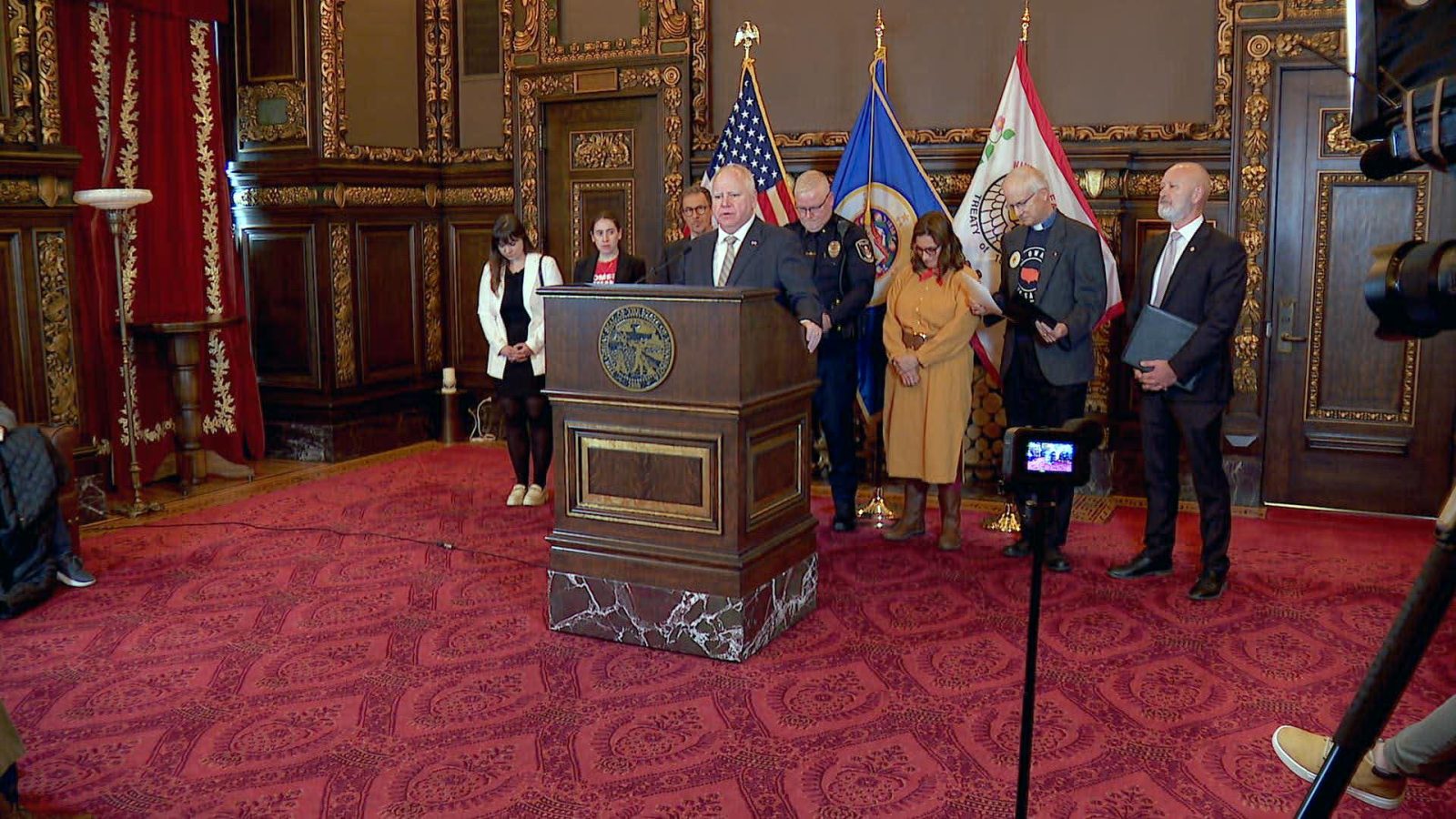Red-Flag Gun Law Takes Effect, ‘Will In Fact Save Lives’
Minnesota’s so-called “red flag” gun law went into effect on the first of the year.
Gov. Tim Walz, flanked by lawmakers and advocates, spoke in favor of the new law on Jan. 2.
“If this saves one life, that’s good enough,” Walz said during a press conference.
The new law allows state courts to temporarily prohibit someone from buying or possessing a firearm. Family members, law enforcement or a county attorney can make these requests if they believe someone is at risk of harming themselves or someone else.
These requests are legally known as Extreme Risk Protection Orders.
“Sometimes people can’t see when they’re in crisis, and if you’re able to remove that firearm from that siltation, you’re able to save lives,” Walz said.
Minnesota Sen. Ron Latz (DFL-St. Louis Park) — one of the bill’s lead authors — said that this type of law has prevented suicide and shootings in other states.
“It’s not often we get to stand up here and say, what we did will in fact save lives, but absolutely, this one will,” Latz said. “We knew early on that the data shows that it is effective.”

Minnesota Gov. Tim Walz speaks in favor of the state’s new “red flag” gun law on Jan. 2.
Red Flag Law Approved in May
The law was approved in May during the last legislative session.
“This is a good move forward — I’m glad Minnesota finally got here,” Walz said. “This was after years of just, no hearings, nothing happening and stonewalling. And this is smart. And I say this as a gun owner, as a veteran, as a life-long hunter: none of these things infringe upon your Constitutional rights to safe usage of firearms. What they do do is, they save lives, and they make our cities and our homes a little bit safer.”
State Rep. Cedrick Frazier (DFL-New Hope) was the bill’s chief author in the Minnesota House of Representatives.
“This session, I was proud to lead the passage of two critical bills into law: the Intervention and Crime Prevention Act and the Red Flag Law,” Frazier wrote in a statement released in December. “They invest in mental health resources, empower families to intervene in times of crisis, and support community-based crime prevention services. These are not partisan issues; they are matters of life and death, and they deserve our collective support.”


